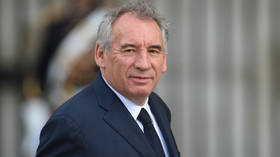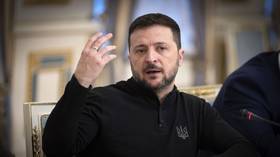Six-year presidential terms a step closer
Russia's Upper House has voted to accept constitutional amendments extending the presidential term from four to six years and the lower house from four to five years. The changes were backed by 144 votes to one, with 126 votes needed to secure the amendme
Wednesday’s debate in the Federation Council was very brief, lasting no more than a quarter of an hour.
All those who took the floor, unanimously agreed that the proposed amendments would increase stability in the country, ensure continuity and increase the accountability of the president and the parliament.
The Federation Council announced that the changes would be made “in form of a special legislative act” – a law allowing the proposed constitutional amendment.
Under the current arrangement, both the president and Duma deputies serve four-year terms. Last week the reforms proposed by sitting President Dmitry Medvedev were adopted by the lower house – the State Duma.
Russia would not be unique here. In Finland the president enjoys six years in office, while in Ireland and France the term is a year longer. But the changes will not apply to the current terms served by Medvedev and the Duma.
Despite broad support among the political elite, questions are being asked about why the proposed extensions are being rushed through now.
Nikolay Petrov from Carnegie Moscow Center has an answer. “The Kremlin wants to be ready in case early elections are needed due to the development of the economic crisis,” he said.
The amendments were overwhelmingly supported by the State Duma in all three hearings.
Liberal Democratic Party leader Vladimir Zhirinovsky says the changes are needed for practical reasons. “We agreed to these amendments not because we like this hall so much, or this Constitution, or these amendments. We just need more time for real work, whereas before we had been constantly preparing for election campaigns,” he said.
The Communists were along in opposing the amendments. While the bill’s supporters say it would strengthen Russia’s democracy, its opponents claim just the opposite.
Communist Party leader Gennady Zyuganov says “the current president has more power than the General Secretary, Tsar and Pharaoh all together.”
Zyuganov added that the current arrangements give the Russian president enough power to run the country effectively. “What we lack are instruments to keep the president accountable,” he said.
But the latest polls conducted by the All-Russia Public Opinion Research Center show that more than half of Russians back the extension of the terms while almost 70 per cent say amending the Constitution is acceptable.
After the Federation Council's approval, the bill has to be endorsed by two-thirds of Russia’s regional lawmakers who have a year to consider the amendments.
But with the bill seeing wide support from politicians and the public, things are likely to move much faster.
And the final stage is the presidential signing.
Some experts say the changes may well become law before the year is out.
If completed successfully, this would be the first change to Russia’s post-Soviet Constitution since it was adopted 15 years ago.












